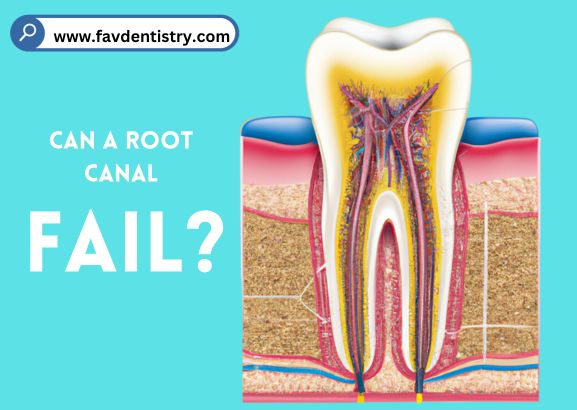Last Updated on 3 weeks by DR. ALBIN SIPES
Many people think they need a root canal when they get a crown, but that’s not always the case. You can get a crown without a root canal if the tooth is healthy and there’s no infection or damage to the root. However, a root canal might be necessary before getting a crown if the tooth is damaged or infected.
Does a Crown Without a Root Canal Hurt?
No, a crown without a root canal will not hurt. However, if you have an infection in your tooth, the surrounding tissue may be irritated and uncomfortable.
Root Canal Or Just a Crown: Which one will come first?
A root canal will come first. When a tooth is infected, dentists recommend an X-ray first. After seeing the x-ray, the root canal treatment started. After completing the whole root canal process, it takes an impression of the crown.
What Percentage of Crowns Need Root Canals?
The percentage of crowns that need root canals varies depending on the tooth. Molars have a higher rate of requiring root canals, at about 30-40%. They have more roots and are more likely to develop decay or infection.
Premolars have a lower rate of requiring root canals, at about 10-15%.
Can a Crown Replace a Root Canal?
It is often used to protect a tooth weakened by decay or injury. In many cases, a root canal can be completed without placing a crown. However, there are some situations where a crown may be recommended to help protect the tooth from further damage.
For example, if the tooth has extensive decay or significant damage to the surrounding gum tissue, a crown may be needed to restore the tooth’s strength and function.
What can I do if I can’t afford a crown after a root canal?
If you’ve ever had a root canal, you know they can be pretty expensive. And if you need a crown on top of that, the cost can start to add up. But what if you can’t afford a crown?
Is there anything you can do? First, make a contact with your dentist. They can work out a payment plan or help you find financing options.
Some dental schools offer low-cost root canals and crowns for patients who qualify. Sometimes, your dentist may recommend an alternative treatment that doesn’t require a crown. For example, if the tooth is not too severely damaged, they may be able to fill it instead.
Or, if the damage is mainly on the tooth’s surface, they may be able to place a veneer instead of a crown. Of course, no one wants to have to go without their teeth. But sometimes, financial constraints make it necessary.
If this is the case for you, talk to your dentist about your options so that you can make the best decision for your situation.
Crown Without Root Canal Cost
The cost of a root canal can vary depending on several factors, including the damage’s severity, the tooth’s location, and whether or not you have dental insurance. Without insurance, a root canal can cost anywhere from $600 to $1,200. Dental insurance is essential. It will cover all of the costs of dental procedures.
If you’re facing a root canal, there’s no need to worry about the cost. There are several financing options available that can help make this necessary procedure more affordable.
Crown Without Root Canal Sensitivity
If you have a tooth that requires a root canal but are worried about the sensitivity and pain afterward, you may be a candidate for a crown without root canal sensitivity. This type of procedure is also known as an apicoectomy. It’s a minimally invasive surgery that can be performed in your dentist’s office.
During a crown without root canal sensitivity, the dentist will make a small incision in the gum tissue to access the tooth. The infected or damaged tissue at the end of the root will be removed. A filling will be placed in the space and then sealed with resin.
The gums will be stitched up, and a temporary crown will be placed over the tooth. You may experience mild discomfort after the procedure, but this can usually be controlled with over-the-counter pain medication. There may also be some swelling and bruising, which should subside within a week.
Once healed, you’ll return to your dentist to have a permanent crown placed over the tooth. Crowns without root canal sensitivity are often used as an alternative to traditional root canals because they’re less invasive and cause less damage to the surrounding teeth. They’re also generally more affordable than conventional root canals.
Without a Tooth Crown Is Possible?
If you’ve ever wondered if you can get a crown without a tooth, the answer is yes! It’s common to get a crown without a tooth. It’s because there are many reasons why someone might need a crown but not a tooth.
For example, someone who has had all their teeth extracted (pulled) may still need to wear a denture (false teeth) but must also have dental crowns placed on their remaining teeth to support the denture. In this case, the person would not have any natural teeth left, so they would technically get a “crown” without a “tooth.” Another reason someone might get a crown without a tooth is if they have suffered from extensive decay or damage to their teeth.
In these cases, the tooth may need to be removed and replaced with an artificial one. However, for the artificial tooth to look realistic and function properly, it will likely need to be supported by one or more dental crowns. So again, even though there is no longer an actual tooth present, the person will still technically be getting crowned.
Lastly, sometimes, people with perfectly healthy teeth may still opt to get dental crowns placed on them for aesthetic purposes. For example, they may want their front teeth (incisors) capped with gold or porcelain to give them a more glamorous look. Or they may wish to have all their molars crowned with silver to match their fillings.
Whatever the reason, it is possible to get crowned without having any natural teeth present!
Is a Root Canal Last Without a Crown? If Last How Long?
If you’re like most people, the thought of having a root canal is enough to send shivers down your spine. Root canals are known to be painful, but that’s usually because they’re performed on teeth already in pain. Root canals are quite effective at alleviating pain and saving teeth.
But how long do they last? And what happens if you don’t get a crown after your root canal? Root canals are designed to be permanent solutions for damaged or infected teeth.
In most cases, once a root canal is performed, the tooth will last the rest of your lifetime. However, there are some instances where a tooth with a root canal may need to be retreated or even replaced. Retreatment is usually necessary when new damage or infection in the tooth was not detected during the initial root canal procedure.
A new crown may sometimes be needed to protect the tooth from further damage. It’s important to note that even though retreatment or replacement may be necessary in some cases, it’s still much less expensive and invasive than extractions and dental implants. So, how long does a root canal last without a crown?
In most cases, it lasts forever! But if you need retreatment or replacement down the road, don’t worry – it’s still worth saving your natural tooth!
How Long Keep a Root Canal Teeth without a Crown?
You may have a cracked tooth or a tooth worn down from using it as an “extra” toothpick. Your dentist has recommended a crown to protect the tooth, but you need more time and money for it right now. Is it vital to get a peak right away?
How long can you delay getting one? The first thing to understand is what a dental crown is.
Crowns are usually used when there is significant damage to the tooth, such as from decay or trauma. They can also support a large filling when no tooth remains.
If your dentist recommends a crown, they believe protecting your tooth from further damage is necessary. Depending on the extent of the damage, you can delay getting a crown for a while. However, if the damage is severe, getting a crown as soon as possible is essential to avoid further damage and pain.
If you do decide to delay getting a crown, there are some things you can do to minimize the risk of further damage: -Avoid chewing on hard foods (ice cubes, candy).
- Limit acidic drinks (coffee, soda)
- Quit smoking
- Visit your dentist regularly
Ultimately, if your dentist recommends getting a dental crown – especially if the damaged tooth is causing pain – it’s best not to wait too long to get one placed.
How Bad Can a Tooth Be And Still Get a Crown
A tooth can be in bad shape and still get a crown. The tooth may be cracked, chipped, or have a large cavity. As long as enough healthy tooth remains, a crown can be placed over the damaged tooth.
Root Canal Through Crown Success Rate
A root canal through the crown is a type of root canal that is performed when there is damage to the tooth above the gum line.
This type of procedure has a success rate of over 95%.
Conclusion
The conclusion is that having a crown without a root canal is not a good process. Try to do a root canal first neither it will create a problem on any day of your lifespan. Then get the crown. It will be a long-lasting and safe process.





